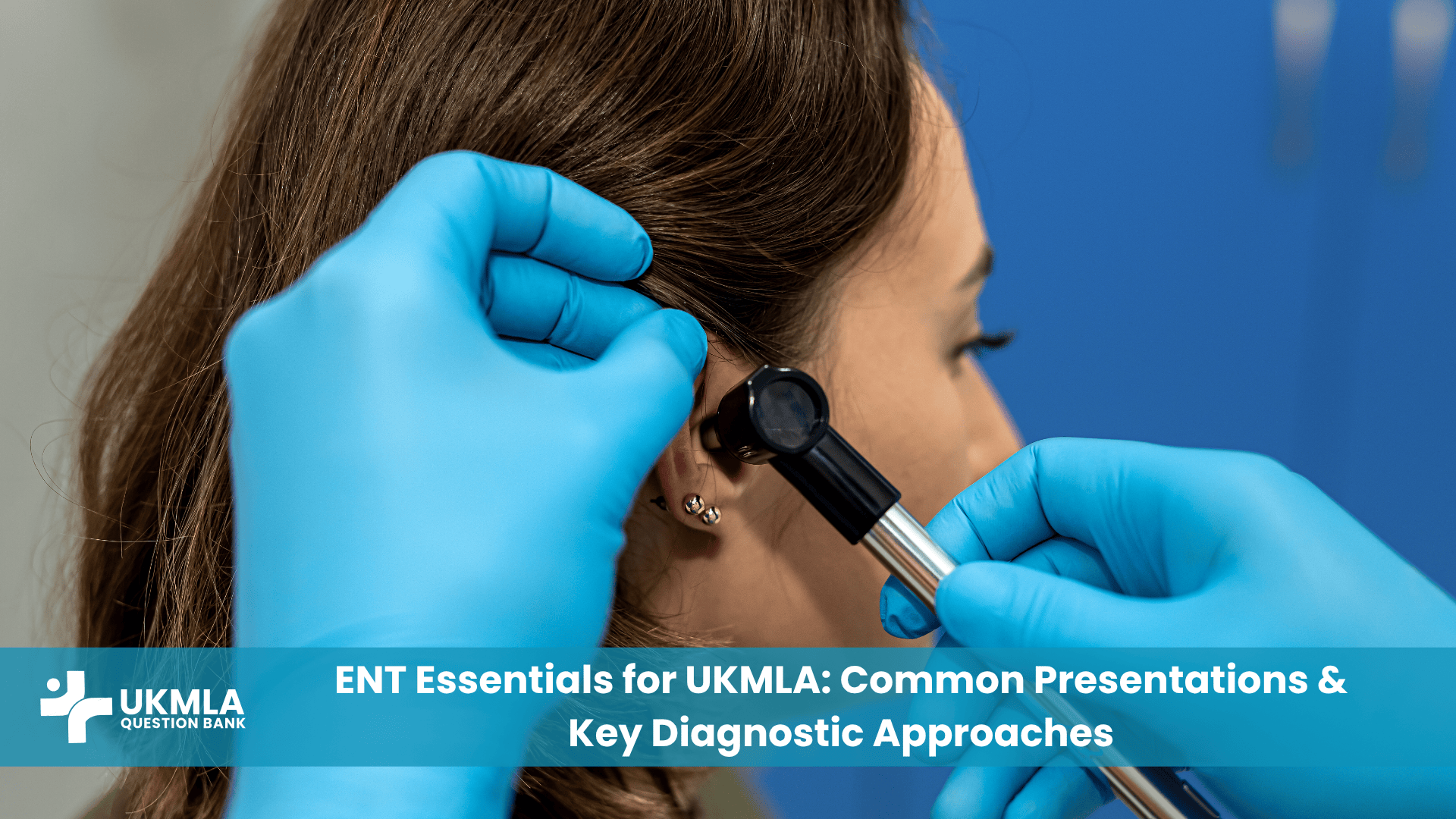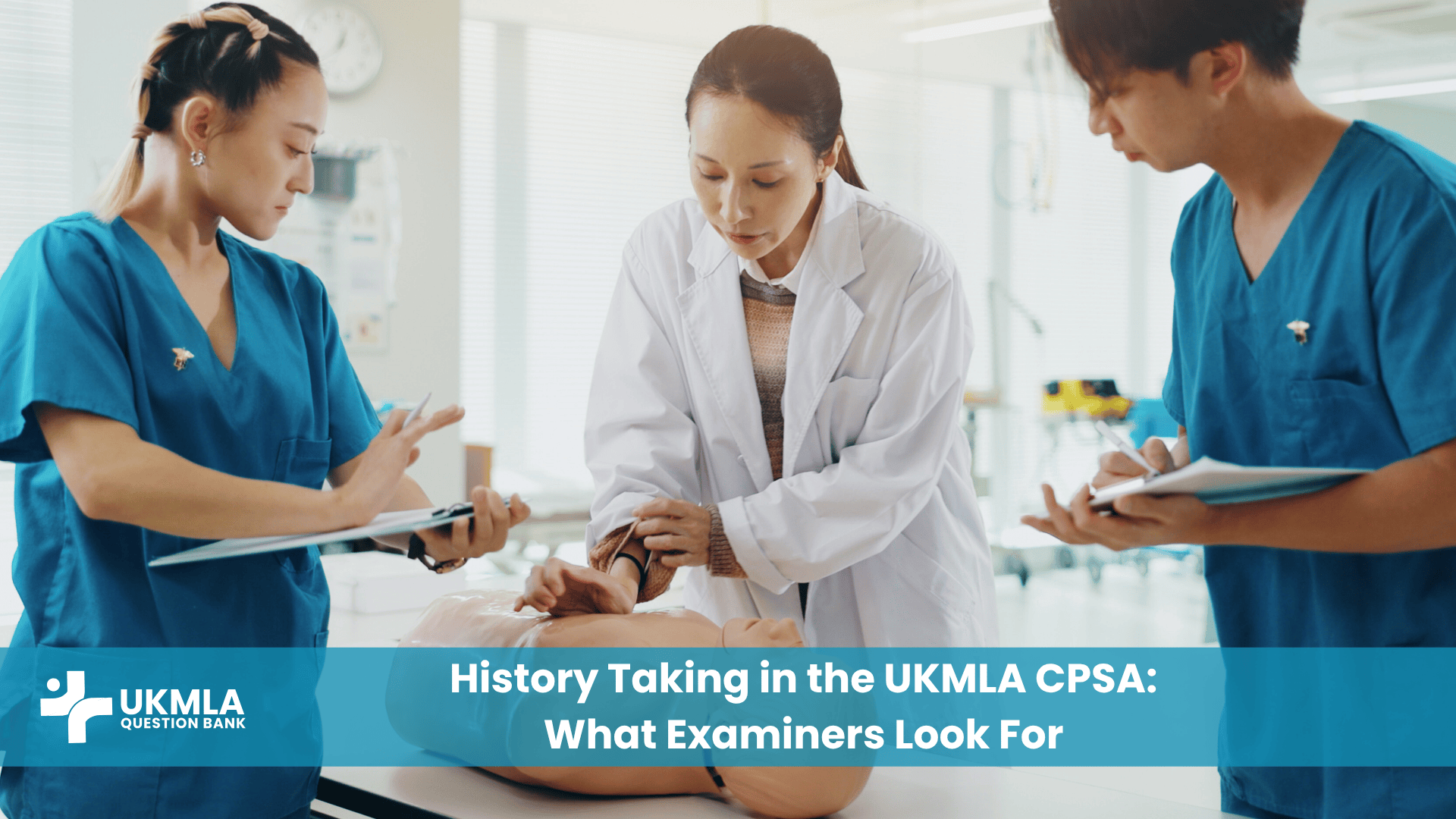For aspiring doctors and international medical graduates (IMGs) aiming to practice medicine in the United Kingdom, the landscape of medical licensing has undergone a significant transformation. The introduction of the UK Medical Licensing Assessment (UKMLA), often referred to simply as the UKMLA, marks a pivotal shift. This assessment is designed to ensure that all doctors entering the GMC medical register – regardless of where they qualified – possess the necessary knowledge, skills, and professional behaviours to practice safely and effectively within the UK healthcare system.
At the heart of the UKMLA is the Applied Knowledge Test (AKT), a computer-based exam predominantly featuring Multiple Choice Questions (MCQs). It is these UKMLA MCQs that form the bedrock of your assessment, challenging your clinical reasoning, understanding of medical principles, and ability to apply knowledge in real-world scenarios.
But why are UKMLA MCQs not just a hurdle to overcome, but truly crucial for your entire medical career success? This comprehensive guide will delve deep into the multifaceted importance of mastering UKMLA MCQs, from securing your GMC registration to laying the groundwork for a thriving, long-term medical profession in the UK.
Understanding the UKMLA and the Central Role of MCQs
Before we dissect their importance, let’s clarify the UKMLA structure. The UKMLA consists of two parts:
- Applied Knowledge Test (AKT): This is the computer-based exam primarily composed of MCQs. It assesses your medical knowledge and its application across a broad range of clinical presentations and medical specialties.
- Clinical and Professional Skills Assessment (CPSA): This is a practical assessment, usually an Objective Structured Clinical Examination (OSCE), which evaluates your clinical skills, communication, and professional behaviours in a simulated environment.
While both components are vital, the AKT, with its heavy reliance on UKMLA MCQs, is often the first major barrier and a significant predictor of success. The sheer volume and breadth of topics covered by these multiple-choice questions demand a robust, systematic, and strategic approach to preparation. These aren’t just about rote memorization; they are designed to test your critical thinking, diagnostic reasoning, and understanding of patient management.
The Undeniable Importance of UKMLA MCQs for Your Medical Career
Mastering UKMLA MCQs extends far beyond simply passing an exam. It is an investment in your foundational medical knowledge, clinical acumen, and professional development. Here’s why they are profoundly crucial:
1. The Gateway to GMC Registration and Practice in the UK
This is the most immediate and tangible reason. Successful completion of both parts of the UKMLA (including the AKT with its UKMLA questions) is a mandatory requirement for all medical graduates – including those from UK medical schools and international medical graduates – to gain full registration with the General Medical Council (GMC). Without this registration, you cannot legally practice medicine in the UK. Therefore, excelling in UKMLA MCQs is the non-negotiable first step on your journey to becoming a practicing doctor in the British healthcare system.
2. Building a Robust Foundation of Clinical Knowledge
The UKMLA exam covers a vast curriculum, encompassing a wide spectrum of medical specialties such as internal medicine, surgery, paediatrics, obstetrics and gynaecology, psychiatry, and general practice. Preparing for UKMLA MCQs forces you to consolidate and deepen your understanding across these disciplines. This rigorous preparation doesn’t just help you pass; it builds a solid and comprehensive clinical knowledge base that will serve you throughout your entire medical career, irrespective of your chosen specialty. It ensures you have a broad understanding of common and critical conditions, their presentations, investigations, and management.
3. Developing Critical Thinking and Problem-Solving Skills
Unlike simple recall questions, many UKMLA MCQs are designed to test your ability to apply knowledge to complex clinical scenarios. They present patient vignettes, ask for the most likely diagnosis, the next best step in management, or the safest prescription. This process actively hones your critical thinking, diagnostic reasoning, and problem-solving abilities. You learn to:
- Identify key information from a patient presentation.
- Differentiate between similar conditions.
- Weigh the pros and cons of different management options.
- Prioritise actions in an emergency. These are invaluable skills that transcend the exam hall and are fundamental to safe and effective patient care in real-world practice.
4. Mastering Time Management and Exam Technique
The AKT is a timed examination with a significant number of UKMLA MCQs. Effective time management is paramount to ensure you answer all questions accurately without rushing or running out of time. Regular practice with UKMLA question banks allows you to:
- Develop a strategic approach to tackling questions.
- Learn to quickly identify the core question.
- Eliminate distractors efficiently.
- Pace yourself effectively throughout the exam.
- Build resilience under exam conditions. This disciplined approach to timed assessments is a skill that will be useful not only for the UKMLA but also for future professional examinations and even in fast-paced clinical environments.
5. Identifying and Rectifying Knowledge Gaps
One of the most powerful benefits of engaging with UKMLA MCQs through a structured UKMLA question bank is the ability to pinpoint your weaknesses. When you consistently get questions wrong in a particular area (e.g., cardiology, pharmacology, or ethics), it immediately highlights a knowledge gap. This allows you to:
- Direct your revision efforts strategically.
- Focus on areas where you need to improve most.
- Turn your weaknesses into strengths before the actual exam. This iterative process of self-assessment and targeted learning is a cornerstone of effective preparation and ensures comprehensive coverage of the curriculum.
6. Building Confidence and Reducing Exam Anxiety
Facing a high-stakes exam like the UKMLA can be daunting. However, consistent exposure to UKMLA practice questions and simulations builds familiarity and confidence. As you see your scores improve and your understanding deepen, your anxiety levels naturally decrease. This confidence is not just about passing the exam; it translates into a more assured approach to your initial years of practice, where you’ll be expected to make important clinical decisions. Feeling prepared empowers you to perform at your best under pressure.
7. Preparing for Future Specialization and Postgraduate Exams
The knowledge and problem-solving skills acquired while preparing for UKMLA MCQs form a robust foundation for your entire medical career. Many postgraduate medical examinations for specialty training in the UK (e.g., MRCP, MRCS, MRCOG, MRCGP) also heavily feature MCQs and similar question styles. The discipline, knowledge base, and exam techniques you develop for the UKMLA will provide an invaluable head start for these future crucial assessments, making your journey through medical training smoother and more efficient.
8. Reflecting Real-World Medical Scenarios and Clinical Governance
The design of UKMLA MCQs often incorporates realistic clinical scenarios, ethical dilemmas, and questions related to patient safety, communication, and professional accountability. This focus ensures that graduates are not just academically knowledgeable but also prepared for the practicalities and responsibilities of medical practice within the UK healthcare system. It subtly teaches the principles of clinical governance, safeguarding, and patient-centred care that are fundamental to the NHS.
9. Benchmarking Against Peers
While often done privately, engaging with UKMLA question banks that provide performance analytics allows you to benchmark your progress. Some platforms offer insights into how your scores compare to other users, highlighting areas where you might be excelling or falling behind. This can provide motivation and guide your study strategy, ensuring you are on track relative to the standard required.
10. Fostering Continuous Professional Development (CPD)
The medical field is constantly evolving. While the UKMLA is a licensing exam, the rigorous study required for its MCQ component instills a habit of continuous learning and critical appraisal of medical information. This forms the basis of lifelong learning and continuous professional development, which is a mandatory requirement for maintaining your GMC registration and thriving in your medical career. It ensures that doctors remain up-to-date with the latest evidence-based medicine, guidelines, and best practices.
Optimizing Your UKMLA MCQ Preparation
To truly leverage the crucial nature of UKMLA MCQs for your career success, effective preparation is key. Here are some strategies:
- Start Early and Consistently: Don’t leave preparation until the last minute. Regular, consistent study over an extended period is far more effective than cramming.
- Utilise a Comprehensive Question Bank: A high-quality UKMLA question bank like ukmlaquestionbank.com is indispensable. Look for one that offers:
- A wide range of clinically relevant MCQs.
- Detailed explanations for both correct and incorrect answers.
- Performance tracking and analytics.
- Questions mapped to the UKMLA curriculum (Medical Licensing Assessment (MLA) content map).
- Active Recall and Spaced Repetition: Don’t just passively read. Actively test yourself with MCQs and revisit challenging topics at increasing intervals to solidify your knowledge.
- Simulate Exam Conditions: Practice full-length mock exams under timed conditions to build stamina and perfect your exam technique.
- Review Explanations Thoroughly: The learning happens not just when you answer a question, but when you meticulously review the explanations, understanding why an answer is correct or incorrect. This is where true knowledge acquisition and consolidation occur.
- Address Weaknesses: Use performance feedback from your question bank to identify your weak areas and dedicate extra study time to them.
- Collaborate and Discuss: Studying with peers, discussing challenging UKMLA questions, and explaining concepts to others can deepen your understanding and retention.
Frequently Asked Questions (FAQs) about UKMLA MCQs
UKMLA MCQs are Multiple Choice Questions forming the core of the UK Medical Licensing Assessment (AKT). They are critical because passing the UKMLA is mandatory for GMC registration, allowing you to practice medicine in the UK. These UKMLA questions assess your applied medical knowledge and clinical reasoning, proving your readiness for a medical career here.
UKMLA MCQs focus on applying knowledge to clinical scenarios, unlike many medical school exams that test rote recall. They emphasize UK clinical guidelines and integrated medical knowledge, preparing you for real-world patient situations rather than just specific subject facts. UKMLA preparation bridges the gap between academic learning and practical application.
UKMLA MCQs cover a vast range of medical topics, including core specialties like Medicine, Surgery, Paediatrics, O&G, Psychiatry, and GP. They also integrate foundational sciences, public health, ethics, and law. A comprehensive UKMLA question bank ensures you’re ready for this broad curriculum, essential for a well-rounded medical career.
Practicing UKMLA MCQs improves clinical reasoning by presenting diverse patient vignettes. You learn to interpret data, diagnose conditions, and plan management effectively. The detailed explanations in a UKMLA question bank teach the underlying reasoning, sharpening your diagnostic and therapeutic skills crucial for patient care.
There’s no fixed number, but extensive, high-quality practice is key. Aim to complete a comprehensive UKMLA question bank, focusing on understanding the explanations for both correct and incorrect answers. It’s about the depth of review, not just quantity, to ensure thorough UKMLA preparation and knowledge retention.
Active recall and spaced repetition are highly important. Active recall (testing yourself with UKMLA MCQs) strengthens memory, while spaced repetition ensures long-term retention by revisiting challenging questions at intervals. These methods make your UKMLA preparation highly efficient, solidifying knowledge for the exam and your medical career.
Yes, absolutely. Practicing UKMLA MCQs under timed conditions helps you develop a strategic pace, learn to manage time per question, and build stamina for the lengthy UKMLA exam. This prepares you to complete all sections efficiently and accurately, a vital skill for the exam and future clinical practice.
A good UKMLA question bank fosters medical knowledge development by providing detailed explanations for each UKMLA MCQ. This clarifies complex concepts, reinforces clinical guidelines, and explains the rationale behind medical decisions. Consistent use deepens your understanding of medical science and its application, crucial for ongoing professional growth.
Common pitfalls include memorizing answers without understanding, neglecting weak areas, or relying solely on one resource. Also, failing to review explanations thoroughly or practice under timed conditions can hinder progress. Avoiding these makes your UKMLA preparation more effective for achieving medical career success.
For IMGs, UKMLA MCQs provide a crucial bridge. They help familiarize IMGs with UK clinical guidelines, terminology, and ethical frameworks. Mastering the UKMLA exam demonstrates competence and readiness to the GMC and employers, facilitating a smoother transition to GMC registration and a successful medical career in the UK.
Conclusion: UKMLA MCQs – The Unseen Architects of Your Medical Destiny
The journey to becoming a practicing doctor in the UK is undoubtedly challenging, but with the right approach, it is incredibly rewarding. The UKMLA MCQs are far more than just exam questions; they are meticulously designed tools that shape your knowledge, refine your clinical reasoning, and prepare you for the demanding realities of medical practice. From securing your vital GMC registration to building a robust foundation for future specialization and fostering a commitment to lifelong learning, mastering these UKMLA questions is unequivocally crucial for every step of your medical career success. They are the unseen architects of your professional destiny in the UK.
By strategically engaging with high-quality UKMLA question banks, embracing active learning techniques, and consistently addressing your knowledge gaps, you are not just preparing for an exam; you are investing in the very bedrock of your future as a competent, confident, and successful medical professional in the United Kingdom.




